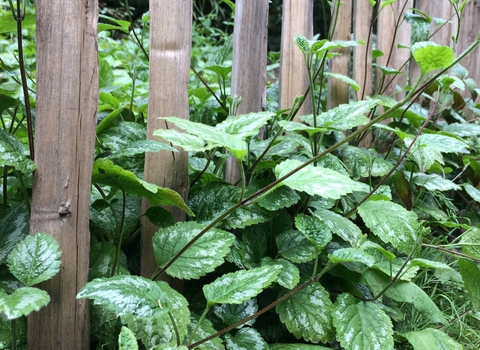We need you! Help us identify and prevent 'future invaders'
We're teaming up with gardeners and key stakeholders to identify and prevent 'future invaders'. Focusing on six locations (see map), we'll be looking at which ornamental plants are spreading in gardens and those which can be found outside gardens (like those found in neighbouring protected areas).
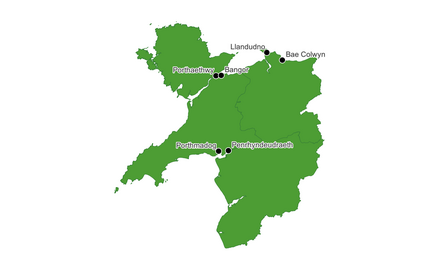
Garden Escapers Location Map © NWWT
What are invasive species?
Globally and here in Wales, ornamental garden plants spreading from gardens are one of the main sources of invasive species which affect our native wildlife. The majority of ornamental plants we find in in our gardens are non-native but are not causing problems. However, a small number we label as invasive species because they have escaped from gardens and impact the environment, economy, our health and the way we live. Invasive species have been recognised globally as one of the top five threats to nature and could become an increasing problem because of the climate crisis.
Examples of known invasive species include Japanese knotweed (Reynoutria japonica), three-cornered garlic (Allium triquetrum), Montbretia (Crocosmia × crocosmiiflora) and Spanish bluebell (Hyacinthoides hispanica). Species which are not currently invasive but have potential to be so include examples such as chocolate vine (Akebia quinata), Himalayan honeysuckle (Leycesteria formosa), Japanese anemone (Anemone × hybrida).
Meet the Garden Escapers team
Dr Tomos Jones - Project Manager
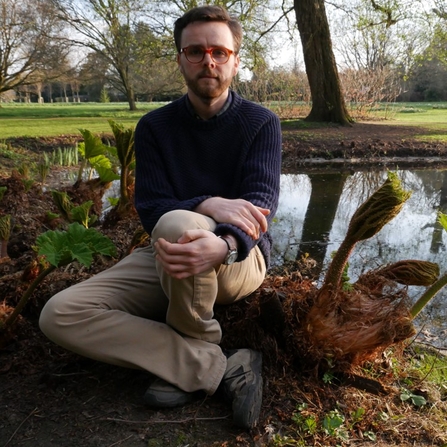
Tomos Jones © University of Reading
Tomos’ particular interest is in identifying ornamental plants that might escape gardens and become invasive in the wild. He is passionate about engaging the public in environmental issues and in science communication. This has included a gold winning educational exhibit in the Discovery Zone at the Royal Horticultural Society's Chelsea Flower Show in 2019 with the University of Reading. A native of Anglesey, Tomos enjoys hunting for orchids in North Wales and beyond and is a keen gardener.
Email: Tomos.Jones@northwaleswildlifetrust.org.uk
Mobile: 07726358228
Lisa Toth - Project Officer
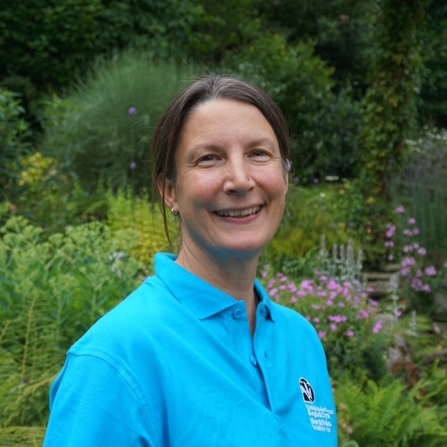
Lisa Toth, Garden Escapers Project Officer © Lisa Toth
Lisa is a horticulturalist and professionally trained Garden Designer and holds qualifications from the RHS, Capel Manor and the acclaimed London College of Garden Design in Kew.
She has a particular interest in planting design. Lisa works with her clients on what to plant, how to manage their gardens better and how to avoid invasive species. She now brings her extensive knowledge of ornamental plants to the Garden Escapers! project at North Wales Wildlife Trust.
Lisa enjoys cycling and hiking, wild swimming, yoga and exploring the Welsh countryside with her dog. She speaks German and Spanish and ‘mae hi’n dysgu Cymraeg ar hyn o bryd’ (she’s learning Welsh at the moment).
Email: Lisa.Toth@northwaleswildlifetrust.org.uk
Mobile: 07940924416
Ellen Williams – Communications and Marketing Officer
Ellen is passionate about the natural environment, having been an active member of North Wales Wildlife Trust’s youth forum for a number of years and completing her conservation traineeship in 2019. She holds qualifications in history and heritage studies and has recently completed an internship in communications and marketing. This has given her a deeper understanding about a range of environmental issues and the work that NWWT undertakes.
Ellen will be continuing her journey as part of the Garden Escapers team, supporting the project by helping to raise awareness of potentially invasive species through social media, website management, and by developing an educational exhibit.
Alex Carey - Nature Networks Support Officer
With diverse experience across several organisations, Alex specializes in business management, focusing on data analysis, process optimization, and finance administration. As a Nature Network Support Officer, Alex plays a pivotal role in supporting the Garden Escapers team to deliver the project within budget and on time, ensuring all project objectives are successfully met.
Alex's love for the outdoors extends to exploring local nature reserves and places of natural beauty, deeply rooted in a passion to support the NWWT in their mission to restore nature.
Watch Tomos discuss how gardeners can stop the spread of invasive species:
How can gardeners stop the spread of invasive species? © Garddio a Mwy, S4C

Allium triquetrum ©LisaToth
Are certain plants spreading in your garden?
We want to hear about them! Become 'citizen scientists' by registering the plants on Plant Alert.
.
Three handy tips on how you can help
Learn how to Be Plant Wise and protect the environment while enjoying your garden
Know what you grow
Choose the right plants for your garden, pond and water features. Download your free guide to plants to use in place of invasive species.
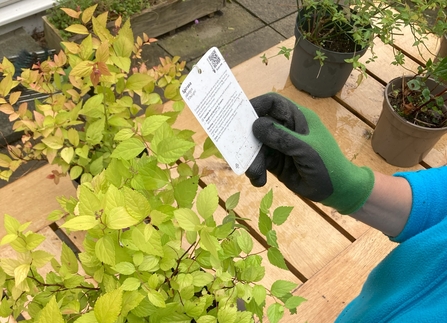
Know what you grow, Garden Escapers © NWWT
Stop the spread
Keep your plants in your garden - don't plant them, or allow them to grow, in the wild.
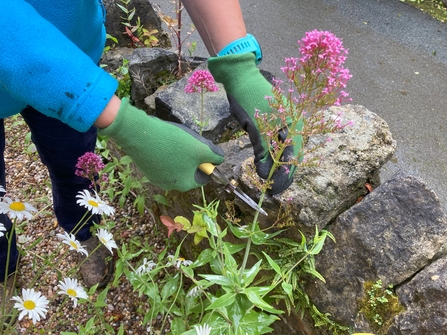
Stop the spread © NWWT
Compost with care
Dispose of your unwanted plants, roots, seeds, and seed heads responsibly. Find out which invasive plants can't be composted and how to dispose of them safely.
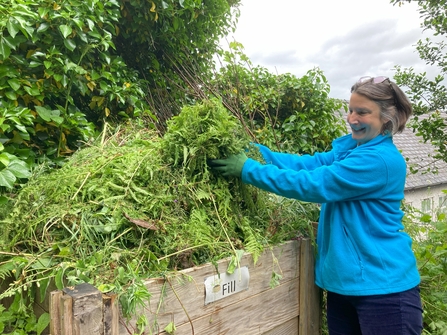
Compost with care © NWWT
For more information on how gardeners can prevent invasive species visit:
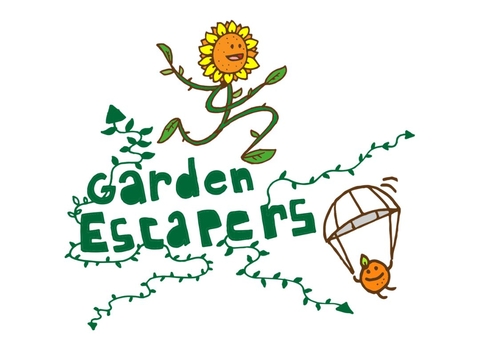
Garden Escapers logo ©
Resource library
Find guidance on how to prevent invasive and potentially invasive species from taking hold.
Contact us:

© The Heritage Fund on behalf of the Welsh Government

